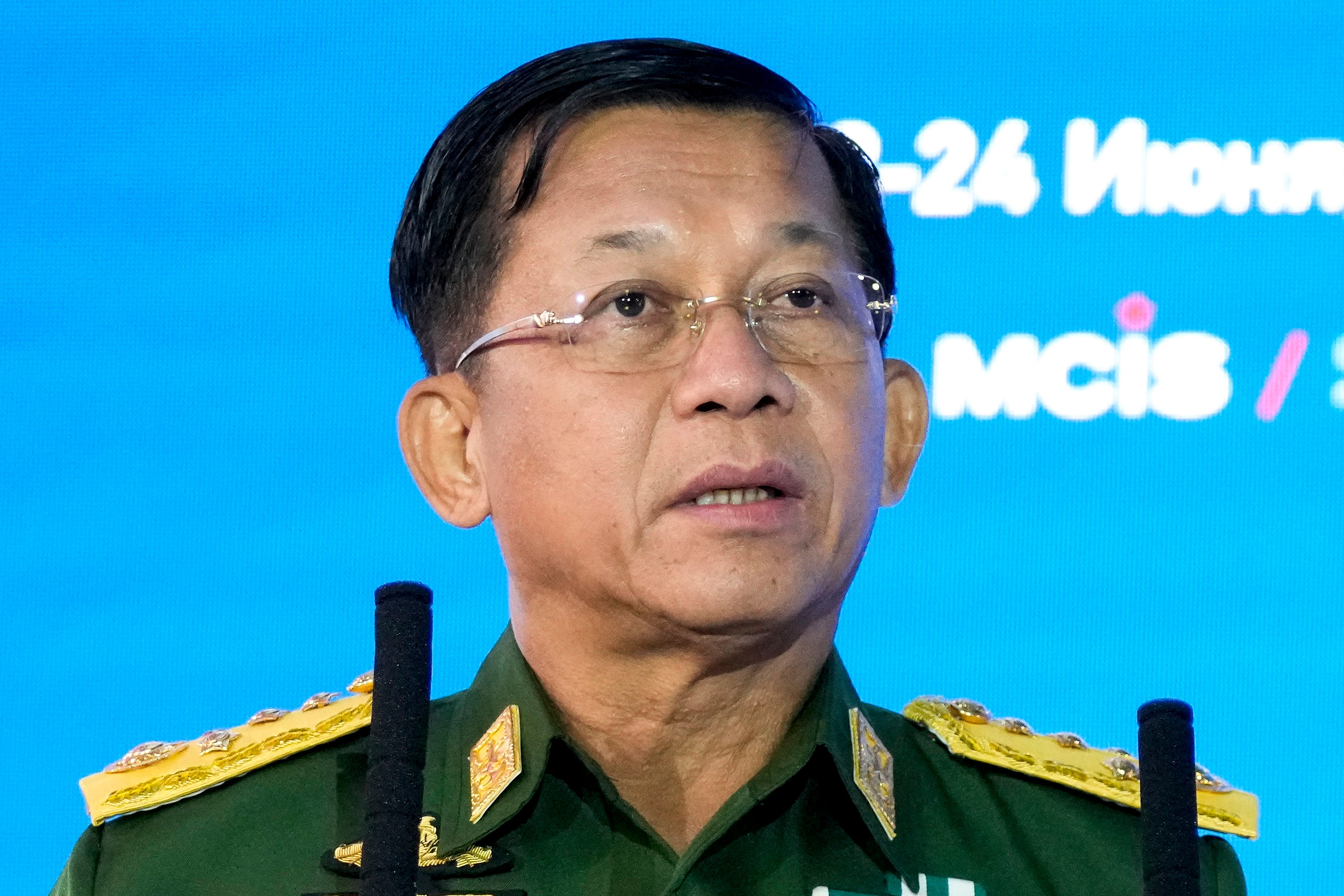Myanmar's military government enacts new political party law
Myanmar’s military-controlled government has enacted a new law on registration of political parties that will make it difficult for opposition parties to mount a serious challenge to army-backed candidates in a general election set to take place later this year

Your support helps us to tell the story
From reproductive rights to climate change to Big Tech, The Independent is on the ground when the story is developing. Whether it's investigating the financials of Elon Musk's pro-Trump PAC or producing our latest documentary, 'The A Word', which shines a light on the American women fighting for reproductive rights, we know how important it is to parse out the facts from the messaging.
At such a critical moment in US history, we need reporters on the ground. Your donation allows us to keep sending journalists to speak to both sides of the story.
The Independent is trusted by Americans across the entire political spectrum. And unlike many other quality news outlets, we choose not to lock Americans out of our reporting and analysis with paywalls. We believe quality journalism should be available to everyone, paid for by those who can afford it.
Your support makes all the difference.Myanmar’s military-controlled government has enacted a new law on registration of political parties that will make it difficult for opposition groups to mount a serious challenge to army-backed candidates in a general election set to take place later this year.
The new electoral law, published Friday in the state-run Myanma Alinn newspaper, sets minimum funding and membership levels for parties participating in the polls. It also bans participation by parties or candidates deemed unlawful or linked to organizations declared by the military government to be terrorist groups.
The army seized power in February 2021 from the elected government of Aung San Suu Kyi, arresting her and top members of her governing National League for Democracy party, which had won a landslide victory for a second term in a November 2020 general election.
The security forces suppressed widespread opposition to the military takeover with lethal force, killing almost 2,900 civilians and arresting thousands more people who engaged in nonviolent protests. The savage crackdown triggered armed resistance in much of the country. The military government deemed major organizations opposed to army rule to be “terrorist” groups, and communication with them was declared illegal.
The new law gives parties two months to re-register with the Union Election Commission and says those that do not will be “automatically invalidated” and considered dissolved.
Parties that compete nationwide will need to attain a membership of least 100,000 within three months after being registered, which is 100 times higher than the minimum level set in the law used in the 2020 election. Parties also need to open offices in at least half of the country's 330 townships within six months and must be able to contest in at least half of all constituencies, the law says.
Critics have already said the military-planned elections will be neither free nor fair because there is no free media and most of the leaders of Suu Kyi’s National League for Democracy party have been arrested. Suu Kyi, 77, is serving prison sentences totaling 33 years after being convicted in a series of politically tainted prosecutions brought by the military.
The National League for Democracy declared last November that it will not accept or recognize the military-planned election, which it described as “fake.” It said the polls are an attempt by the military to gain political legitimacy and international recognition.
The party rejected the new law in a message sent Friday to The Associated Press.
"As the Central Working Committee of the National League for Democracy, we do not accept and acknowledge it, because all the actions of the military council are illegal. The coup by the military council also violated the existing laws and people are not supporting them at all,” said Kyaw Htwe, a member of the committee.
Units of the People’s Defense Force, the armed wing of Myanmar’s banned main pro-democracy movement, have been attempting to disrupt preparations for the election by attacking personnel of the military government who are conducting a population survey that could be used to assemble voter rolls.
Since the survey began on Jan. 9, at least 13 people have been killed and four government workers have been detained by the resistance, according to pro-military and independent media and statements issued by resistance groups.
The announcement of the new law came four days after Senior Gen. Min Aung Hlaing, the country’s military ruler who led the 2021 seizure of power, called at a Cabinet meeting for a new law that structures the political party system in a manner that reduces the number of parties. He said the election could be held once a state of emergency declared after the army’s takeover is lifted, an action that is expected at the end of this month.
There are currently more than 90 political parties, but the military-backed Union Solidarity and Development Party, which fared poorly in the 2020 election, appears to be the only one certain to be able to meet the new law's requirements.